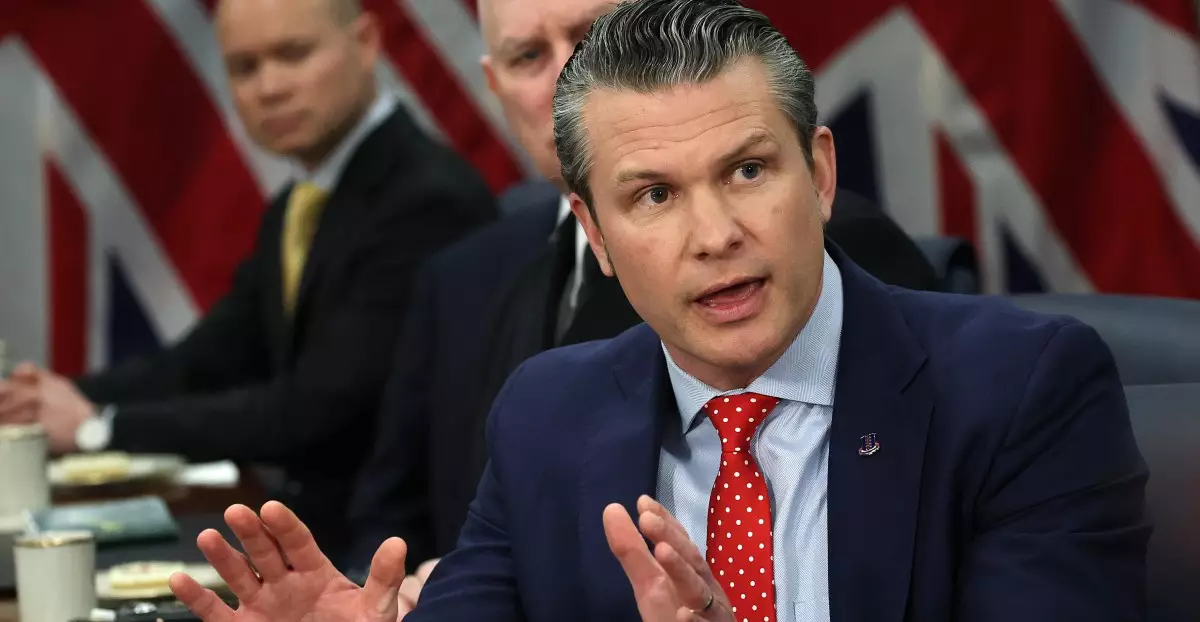In an age where information flows seamlessly across digital platforms, the vulnerabilities of our communication methods are becoming alarmingly evident. A recent incident involving a military planning chat reveals just how perilous the combination of technology and sensitive information can be. When the editor-in-chief of The Atlantic, Jeffrey Goldberg, found himself inadvertently included in a group chat titled “Houthi PC Small Group,” he unwittingly gained insights into a military operation that was being orchestrated by high-ranking officials, including a Vice President and various Cabinet members. This incident raises pressing concerns not just about communication privacy, but also about the integrity of national security.
The Fallout of Digital Oversight
The ramifications of an unauthorized party overhearing military plans can be monumental. In this case, military strike discussions were carelessly exchanged on a consumer messaging app, Signal, known for its secure encryption. While Signal offers robust security measures against outside interference, the presence of unverified individuals fundamentally compromises that assurance. It’s astonishing that such high-profile officials would engage in critical discussions without adhering to secure protocols, especially when the stakes involve potential loss of life and international consequences.
The casual demeanor displayed in the chat following reported bombing activities in Yemen—shared emojis of flexed muscles and celebratory messages—demonstrates a disturbing disconnect from the gravity of their actions. This cavalier approach not only discredits the military seriousness but also emphasizes a dangerous comfort with technology that inherently lacks the rigor necessary for matters of national security.
Missteps in National Security Protocol
The incident has unveiled serious flaws in the current protocols governing discussions of classified military operations. Legal experts consulted by Goldberg highlighted that using platforms like Signal for such dialogues is fraught with risk and outright prohibited under national security policies. These oversights showcase a troubling trend in governance where technology is embraced without an understanding of its limits and the responsibilities that come with it.
Additionally, the lack of awareness throughout the chat regarding Goldberg’s presence speaks volumes about the attention—or lack thereof—given by officials to the platforms being used. It raises crucial questions about the training and preparedness of governmental personnel in navigating digital communication tools. Are these individuals adequately educated on the ramifications of mismanaged technology within sensitive realms?
The Digital Battlefield: A Call to Action
As the world marches further into the digital era, it becomes imperative for federal entities to re-evaluate their communication strategies proactively. With technology benchmarks constantly evolving, the need for reinforced guidelines governing classified information is more critical than ever. The “Houthi PC Small Group” incident serves as a stark reminder that even leading-edge encryption cannot completely safeguard against human error.
Unquestionably, this incident should catalyze an urgent reevaluation of how military discussions are conducted in a digital-first world. The costs of oversight could extend beyond a mere scandal; they could jeopardize lives, court international backlash, and erode public trust. The onus is on both policymakers and technology developers to collaborate on crafting more secure communication frameworks that respect the need for confidentiality in military operations while leveraging innovations in technology.

